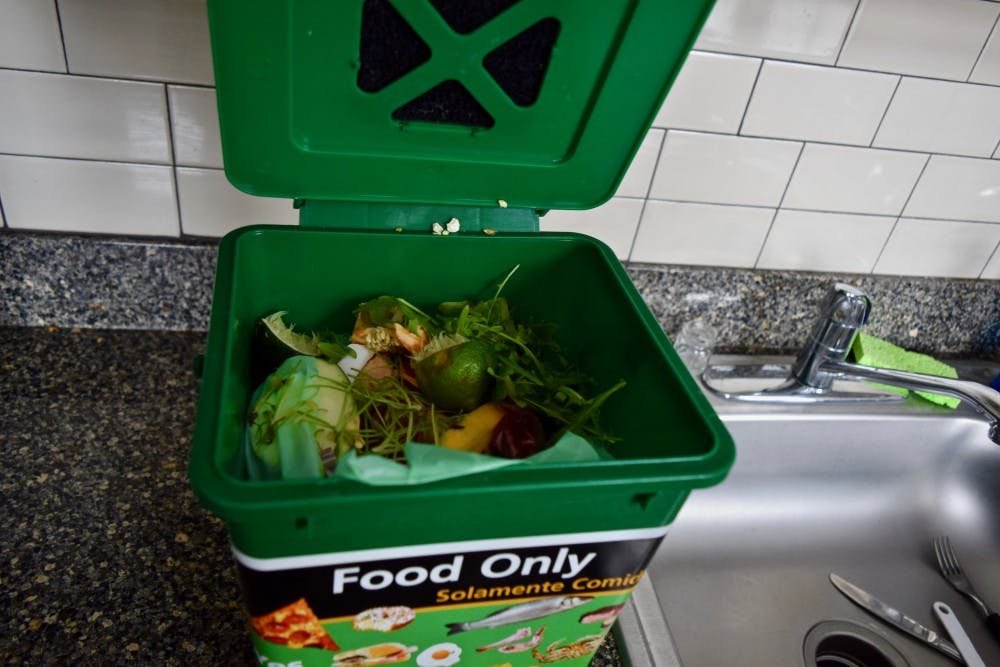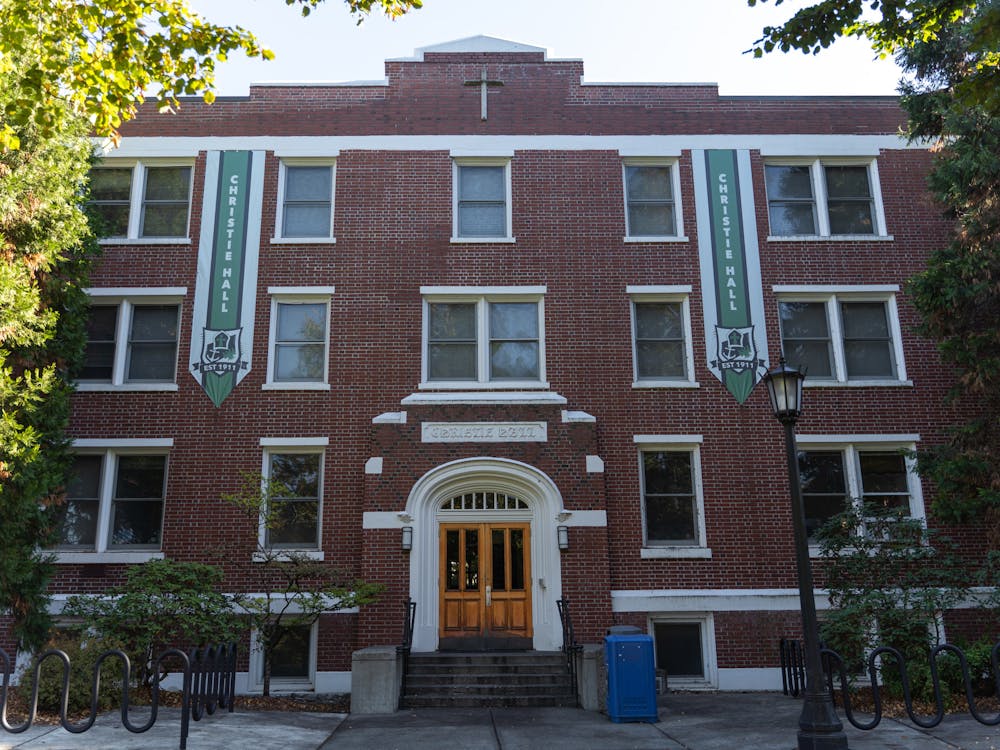In a world where overconsumption contributes to pressing global issues like climate change, University of Portland (UP) students are doing their part in the dining halls and the dorms to compost their food waste and make our campus more sustainable.
Last spring, ASUP introduced a new student-run composting program in the residence halls, which has produced over 1,800 pounds of composted food waste which otherwise would have been thrown away. ASUP hopes to expand the program in the near future to include academic buildings, Chiles Center, and the library, but has been met with resistance from Physical Plant in their proposal for the department to help supervise the program, according to ASUP President Brandon Rivera.
The issue at hand is who should be responsible for a program initiated by student government: students or university staff? ASUP feels that although the program has become successful as a student-run initiative, the opportunity for expanding the program lies with a greater partnership with Physical Plant. Physical Plant has said that they will continue to support the program, but cannot take up the responsibility of facilitating the expansion and believes that it should remain mostly student-run.
Junior Theresa Valdez, dorm composting coordinator, oversees everything from the riders who pick up the compost bins to coordinating the possible expansion of the program in the future.
In the near future, Valdez said she would like to see the program expand outside of just the residence halls, but also said that this expansion could prove difficult as an entirely student-run service.
“It definitely has potential to expand,” Valdez said. “But right now as a student service it doesn’t make sense to serve faculty and professors. Composting outside the dining halls just makes sense because people eat everywhere.”
In December, Rivera met with Physical Plant director André Hutchinson to discuss the possibility of expanding the program through a joint partnership with ASUP and Physical Plant. Physical Plant is in charge of building maintenance, repair and cleaning of all buildings, groundskeeping, recycling, trash disposal, pest control and heating and cooling.

“We did a survey of students who have experienced the composting program in the dorms, and 74 percent of students wanted to see the program expanded,” Rivera said. “There’s obviously some passion here on this campus with composting.”
Rivera presented a proposal to Hutchinson about a partnership with Physical Plant and ASUP, and one of the goals of this proposal was to expand the program to other buildings on campus like Chiles Center, Clark Library and the academic buildings.
“I said Physical plant, if this was under your wing, all you would have to do is to just approve timesheets of the employees,” Rivera said.
“Student employees need time cards to be approved,” Rivera said. “It’s a program that was started here, but with our mission and goals it doesn’t directly align with us. Physical Plant has a mission of sustainability and we thought this program would fit nicely with their principles and values of sustainability.”
Physical Plant currently supplies composting bins and bags for the dorm composting program.
Hutchinson declined Rivera’s proposal, citing multiple reasons.
“One, we don’t have the budget for it,” Hutchinson said. “Two, it’s not in my purview to just add people’s job descriptions beyond what they were when they were hired as university employees. Three, since the beginning this was a student led initiative, and to come to somebody and say, not only will you take over this plan, but expand it and pay for it, that’s just not practical in the real world.”
Hutchinson explained that Physical Plant strongly supports sustainability initiatives, but since this began as a student-led initiative, it should remain that way.
“We’re very supportive of the dorm composting program,” Hutchinson said. “But it began as a student led initiative, that’s what it is, that’s what it has to remain, and we’ll continue to support it the best we can.”
Hutchinson also said that he could not sign the time cards for students because they do not work for his department.
Although the program may not be expanded in partnership with Physical Plant, Rivera remains optimistic about the programs future.
“Right now, the program isn’t going to die if physical plant doesn’t take it,” Rivera said. “Worst case scenario, the program stays here and we keep doing it. At the end of the day we will support it, but we are trying to find a good home for the program that can help grow the program to reach these goals in the future.”
Valdez also encouraged students to keep being vocal about the issue.
“The more support we have behind the composting program, the easier the transition will be to trying to push the program campus-wide,” Valdez said.








